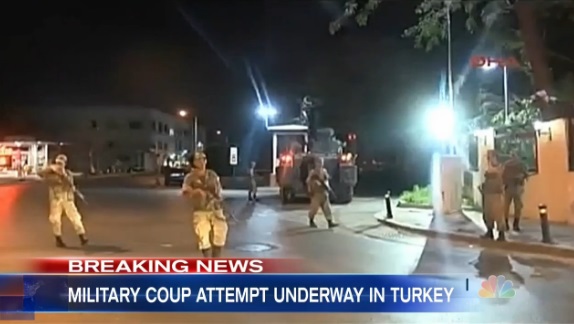By HIROFUMI MATSUO, Nikkei senior staff writer-asia.nikkei.com
The latest military coup attempt in Turkey may have repercussions that reach beyond the nation’s boundaries. Potential political instability in the country may affect the Middle East and Europe, casting a shadow over the region and forcing countries to rethink their local strategies.
Turkey is undoubtedly a major nation in the Middle East. Its population is close in size to those of Russia and Germany, and it has the largest economy in the region as well as a military rivaling Russia’s.
In addition, located at the crossroads of Europe and the Middle East, Turkey’s geographical importance is unequivocal.
In the past, the country played a role as a barrier for the West against further advance of the communist bloc. Because of its border with Syria, it is now on the frontline of the battle against the Islamic State group.
Turkey’s active involvement is essential in battling the militant organization, addressing the region’s refugee crisis and bringing the Syrian civil war to an end. To facilitate all of this, political stability is essential.
Turkey gained political stability under the Justice and Development Party, known as the AKP, which has ruled the country since 2002 under the leadership of Recep Tayyip Erdogan, first as prime minister and now as president. This stability helped the country lure foreign investment, leading to high economic growth and, in turn, raising its profile in the global community.
Despite these favorable developments, the country is now on the verge of rolling backward.
Turkey has been hit with several terrorist attacks, and refugees continue to arrive at its borders. Battle continues against insurgent Kurdish groups. Meanwhile, Erdogan faces mounting criticism over his heavy-handed tactics. The latest military putsch, even though it failed, raises the specter of Turkey’s dark era.
The rebels attempting the coup blocked a bridge across the Bosphorus strait in Istanbul, which links Europe and Asia. The bridge was completed with the help of yen loans from Japan in 1988, not long after the previous coup in 1980. Twenty-five years later, a subway line traveling below the Bosphorus was completed by a Japanese company.
At the opening ceremony for the subway, Japanese Prime Minister Shinzo Abe said, “Turkey and Japan are two wings that support the width of Asia on the east and west ends.” For Abe, who has continued to approach Turkey with offerings of infrastructure deals, Turkey is an important country.
There are a large number of foreign companies operating in Turkey. Japanese companies alone total over 100 and Japanese expatriates about 2,000, representing one of Japan’s largest footholds in the Middle East. There are large projects underway, too, including a nuclear power plant. Many companies set up shop in Turkey as a base for further advances into markets in Central Asia and the Middle East.
The latest coup may force these companies to rethink their strategies.









